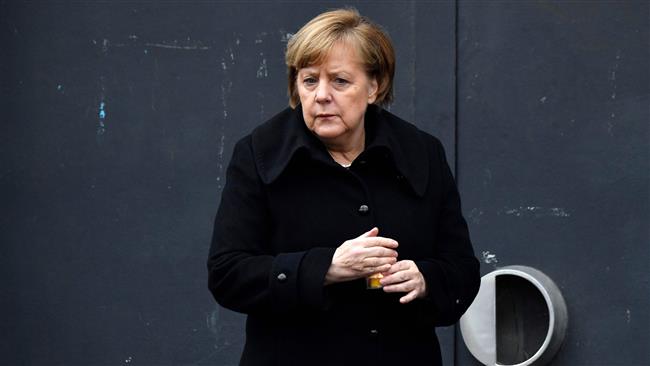Bundesrepublik Deutschland: New questions over Merkel’s coalition as SPD chief resigns
The leader of Chancellor Angela Merkel’s junior coalition partner SPD said Sunday she was resigning from her party chief job, raising the spectre that Germany’s embattled government could collapse.
Andrea Nahles, who heads the centre-left Social Democratic Party (SPD), has come under intense pressure after voters handed the centre-left party its worst score in European elections a week ago.
With an eye on three key state elections in eastern Germany in September, the SPD had initially planned to re-examine its partnership with Merkel’s centre-right CDU-CSU alliance in the autumn.
But ahead of a planned parliamentary leadership vote on Tuesday, Nahles said she would give up her jobs as both party chief and head of its parliamentary group.
“The discussions in the parliamentary group and the broad feedback from the party showed me that the support necessary for the exercise of my offices is no longer there,” said Nahles in a statement.
The 48-year-old said she hoped her resignation “would open the possibility that the succession can take place in an orderly manner”.
Harald Christ, deputy chief of the SPD’s economy forum, told the Bild daily however that Nahles’s decision has put the future of the coalition in serious doubt.
“To all those who are happy today: it is a great loss for German politics. Nahles stands for the existence of the GroKo — whose stability is now in question,” he said, using the German short-form for grand coalition.
– ‘Walking undead’ –
The alliance between Merkel’s Christian Democrats and the SPD has been fragile from the start.
Stung by a poll beating in 2017, the SPD had initially sought to go into opposition.
But it was reluctantly coaxed into renewing a partnership with Merkel, even as many within the party remain wary of continuing to govern in her shadow.
Since then, its ratings have been in free-fall, with the latest poll showing just 12 percent of support, while backing for the opposition Greens has surged.
Last Sunday, it suffered a severe drubbing at European elections, with the Greens snatching second place.
It also suffered the humiliation of losing top spot in state elections that same day in its long-time stronghold, the city-state of Bremen.
CDU sources said the centre-right alliance fully planned to meet its commitments under the coalition deal.
But for the far-right AfD, said the government was already disintegrating.
“Not only is the SPD dissolving, the GroKo too is walking the political stage only as an undead,” the co-leader of the AfD’s group in parliament, Alice Weidel, told national news agency DPA.
With its anti-immigration campaign, the AfD in 2017 drew voters angry with Merkel’s decision to let in more than a million asylum seekers into Germany.
It is also projected to post significant gains in the three upcoming state elections in Saxony, Brandenburg and Thueringen in the fall.
However, from a national perspective, the Greens may now be the biggest headache for the SPD.
While sharing the centre-left position on the political spectrum with the SPD, the Greens are also proving more attractive to young voters because of their environmental platform.
In a national survey released Saturday, the Greens came in top for the first time — obtaining more support than for Merkel’s CDU-CSU alliance. They also had a lead over the SPD of some 15 percentage points.
AFP





